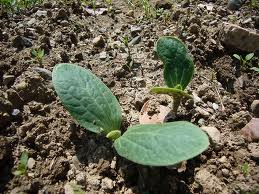One of the most overlooked art forms in the garden is transplanting. Fresh faces to the growing plot assume the potted plant is pulled from its old home and introduced to a new home where dirt is filled in for comfort. Cocktail hour ensues thereafter.

While there is some validity to this approach (especially the drinking part), it’s good to time your transplantings correctly.
There are plenty of age old methods associated with a successful plant migration to your outdoor garden.
Here are some of the tried and true:
- Extend the growing season by starting plants indoors while outdoor conditions are still surly. Check here to see favorable times to start seeds in North Carolina
- Be vigilant in protecting young plants from disease and bugs while they are still in their infant stages. Seaweed foliar sprays build up immunities; and beneficial microbe additions like Trichoderma (which can be found in coconut coir mediums like Just Coir) and Mycorrhizae in your potting mix will cut down down on fungal diseases and create a healthy soil environment.
- Learn what plants are better to direct seed (i.e. root veggies like beets and carrots) as well as knowing ones optimal for indoor and greenhouse starts (i.e. peppers and tomatoes).
- Hardening off or acclimatization is great for avoiding transplant shock. In order to get plants ready for the big bad outdoors, it’s best to slowly introduce them to the elements. Wait until the plant has its third or fourth set of true leaves. The true leaves are different from the set of cotyledon leaves which emerge first as the seedling sprouts. Cotyledons are part of the seed and it serves as food for the seedling. Once the true leaves emerge (which look quite different from the cotyledons), the plant begins photosynthesis. Once you have a third or fourth set of true, you can introduce the plant to the outdoors during the day (as long as the temp is reasonable for the seedlings). Keep them in the shade outdoors for at least a week before giving the plant(s) full sun.

- Moon cycles are important for the serious grower who likes to time their outdoor plantings with the moon; as well as paying homage to ancient methods that now seem avant-garde in the growing community. Check out the Farmer’s Almanac for moon planting dates specific to transplants. There’s a space for typing in your zip code to get specifics for your area.


hub says
More rice with less water – evaluation of yield and resource use efficiency in ground cover rice production system with transplanting – ScienceDirect